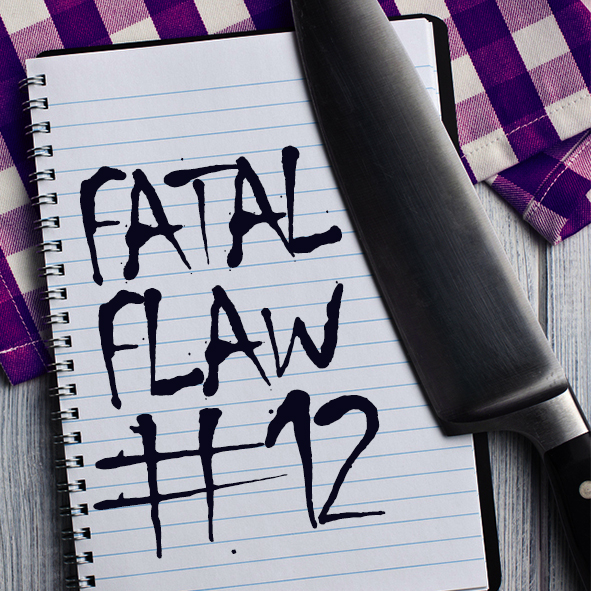Why Writers Should Take the Risk and De-Isolate
Today’s guest post is by Lou Normann
Writers isolate. We do.
We want to be alone, we need solitude, we crave the company of one. We all know it.
After all, you’re working on your masterpiece and you can’t be bothered by the phone, the TV, internet, the family, the radio … Okay, well I have heard that many writers write with the tube or music on, streaming media. Stephen King says he writes with hard rock blaring in the background, but most of us need that vacuum of nothingness.
I am one of those. If anything is on while I am writing—it might be the TV with the volume very low just to hear the noise—I’m not paying attention. If you write, the muse needs to run wild, uninterrupted, and be able to fill you with the magic of words, plot and world building.
The art of creation surely stems from ideas springing up in one’s mind and that person’s ability to give it expression, be it literary, musical, painting, or dance. We in the community of the arts want to hone that skill, finalize the product, and share it with the masses. It’s what we do. And most of us do it in isolation until we are ready to unleash.
So, have you considered de-isolation?
This topic bore a hole in my thought process as I attended a writers’ conference recently where the speaker made a comment about going outside your genre of writing. The topic was on writer’s block, and in the chat box I asked, “How do you feel about writers’ critique groups as far as mingling with others outside your genre?”
Her reply was a generic one, but I lost all attention afterward when the words “step out of your bubble and commiserate” were uttered out of my mouth.
Hmm. I thought about this. Do we as writers truly hole up and refuse collaboration when in the zone? Do you? Would you consider a break from that routine? Would the introvert in you dare to—gulp—hobnob?
This question isn’t meant to scare you. If writing in solitude is your comfort zone, then don’t break it. But what if tiptoeing on the dark side is a good thing?
Have you ever had someone read one of your works, then suggest an addition or fork to your story you never thought of? It has happened to me many a time.
One mystery I wrote was about a girl accused of a family serial killing. At one point during the climax, she was holed up with a new roommate—a girl who wore the same-size clothes. In fact, she muttered as they were changing clothes: “We could be sisters.”
A reader told me, “I thought for sure you were going to spring the revelation on the reader that they indeed were sisters—so now she had someone else to kill.”
The thought never occurred to me, and it was a great suggestion.
This is what I mean by de-isolate. To crawl out of your shell, share with others—writers or not. I
If you write espionage, what if you had a conversation about your book ideas with an author of children’s picture books? Or your mailman or hairdresser? Would one of them spring an idea on you that you would never have thought up in your creative process?
That creative process for some of us is a true gem of exploding ideas and dialogue. But the added benefit could be one line that someone tosses out without even considering the implications on your brain as you add it to your own idea.
Critique groups are good for that, but so are book clubs, or a chat with your favorite local librarian, or a book talk. I speak with kids a lot at schools, and the measure of creativity in those youngers always overwhelms me.
I was a kid who read comic books a lot—I had new superhero and villain ideas crawling out of the woodwork. When I speak with a group of kids about a book or story idea, one of them is sure to blurt out an addition that would catch me out of the blue, and I’d rub my chin and say, “Hmm, you know what, Johnny? That’s a good idea.”
Take the dare, de-isolate, share. Talk about your work, your writing. Don’t dominate the session; just open up to a willing participant.
What would happen if you were in a bookstore standing in your chosen genre section, and a reader was there sliding titles over, and you opened up with “I’m working on something like that, except in mine …”
Try it—you just may get the idea for the sequel.
 Lou Normann credits Stan Lee, Rod Serling, and TV episodes of Colombo as his inspiration for writing. The murder mystery thriller has been in his blood since he can remember. His debut novel “Deathbed” is due for release in the late fall. Connect with Lou at his website or on Facebook.
Lou Normann credits Stan Lee, Rod Serling, and TV episodes of Colombo as his inspiration for writing. The murder mystery thriller has been in his blood since he can remember. His debut novel “Deathbed” is due for release in the late fall. Connect with Lou at his website or on Facebook.
Featured Photo by Noah Silliman on Unsplash












Great advice! I love getting ideas from unexpected places.
I agree with this. Great article. I love it when people in my critique group or a beta reader comes up with an idea or says a comment that takes my plot/character in an unique and exciting direction.